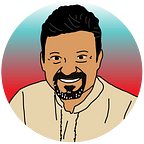The Year We Demanded Better
By Rizwan Tufail, Lindsey Frost Dodson and Melissa Romaine
Many years from today, history might look back at 2018 as the year when our collective naivete and technophilia was replaced by a somber realization that the internet — like the physical environment we live in — requires our care and attention. This is the year when we started to demand better.
It started early. On January 3rd, while the echoes of New Year’s bells still hung in the air, The Tribune in India exposed a major security flaw in the national Aadhaar program: for just Rs 500 (USD $7), logins were faked and scammers were accessing the sensitive information of 1.1 billion citizens.
Then the world was consumed with the Cambridge Analytica scandal. Our faith in Facebook shaking, we also questioned the strength of our democracies. The next day a woman was killed by an Uber self-driving vehicle. Then we heard that Google was working with the Department of Defense to provide artificial intelligence for drone strikes. And in the lead-up to the U.S. midterm elections, politicians wondered if unflattering search results were politically slanted.
Given the complexity and multiplicity of issues, is it realistic to assume one organization could come up with all the solutions?
We think not — and that is precisely why we are fueling a broad movement for Internet Health, with strong, distributed leadership from a multitude of expert individuals to drive solutions as they emerge.
Over the past many years, Mozilla has been investing in building this leadership by supporting incredible leaders around the globe to fight for policy changes, advocate for our rights online, and drive the innovations that will shape the internet of the future.
This year, through our fellowships and awards — two distinct methods within our integrated strategy of investing in individuals at the forefront of the movement — we invested more than $6M to support 60+ leaders. These leaders are working to put individuals in control of their data, connect the unconnected, keep artificial intelligence accountable, and make scientific research more open.
These leaders have proposed solutions to the challenges of wireless connectivity, taken on the FCC on its net neutrality mandate, and pushed back against the onslaught on privacy at the heart of the Aadhaar system.
Spotlight: Mozilla Fellow, Hang Do Thi Duc
Did you know that there’s an app where you can follow a drug dealer in real time, watch a couple fight viciously on Valentine’s Day, and learn exactly how many mangos a Santa Barbara, CA food cart sells each week? Seven million users exchange money and information on this app every month, and if you’ve signed up to Venmo without checking the settings, you’re probably sharing your personal details with the world, too.
Hang Do Thi Duc, a privacy researcher, used Venmo’s public API and its “public by default” setting for transactions to capture these stories and create Public by Default, a way to experience Venmo’s lack of privacy. Then, Mozilla’s Advocacy team created a petition for users to demand that their privacy be respected by Venmo. Although Venmo didn’t change their default settings, they were compelled to educate their users upfront about the privacy settings and options.
Spotlight: Mozilla Awardee, Southern Connected Communities
In rural Tennessee, there’s a broadband tower beaming high-speed internet to residents who previously had little or no access. This is thanks to the Southern Connected Communities Project, an NSF-WINS Mozilla Awardee. For the first time, kids in the community can do their homework online, and parents can hunt for job opportunities from home.
The project team became more deeply connected to Mozilla’s the community of awardees and fellows by attending MozFest 2018, inspiring new learnings and potential future collaborations. “While the funding we received will help us expand our work immeasurably, attending MozFest made me realize that we had not just received an award — we had been welcomed into the Mozilla family, with resources and support that will continue to support our mission for years,” said awardee and 2018 MozFest attendee Adam Hughes.
Interestingly, we see that when we connect multiple leaders, working on similar and connected issues, with each other, we can help their work to have outsized impact and fuel a global movement for internet health.
We couldn’t be more excited to build on this year’s successes, and continue to find new ways to connect in 2019. Join our global community by signing up for our newsletter, to stay updated with fellowships and awards opportunities.
